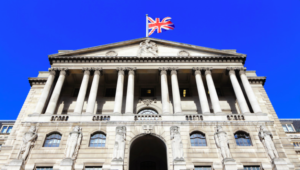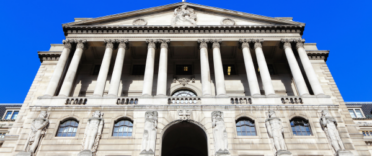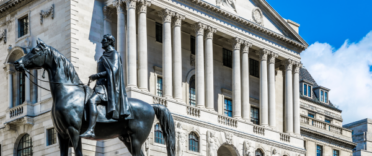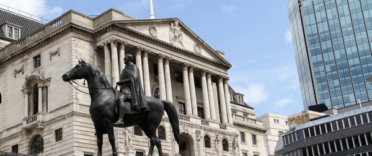 The Bank of England has increased the base rate to 0.5%, up from 0.25%. It follows a previous rise in December 2021, when interest rates moved from an historic low of 0.1%, where they had been since March 2020. It comes as inflation hit its highest level in a decade, with the Consumer Price Index (CPI) standing at 5.4%, which means the cost of living is increasing at a much faster rate than the Bank's 2% target.
The Bank of England has increased the base rate to 0.5%, up from 0.25%. It follows a previous rise in December 2021, when interest rates moved from an historic low of 0.1%, where they had been since March 2020. It comes as inflation hit its highest level in a decade, with the Consumer Price Index (CPI) standing at 5.4%, which means the cost of living is increasing at a much faster rate than the Bank's 2% target.
Why are interest rates going up?
The Bank of England uses interest rates as a mechanism to keep inflation - the rise in the cost of living - under control. It monitors the CPI, which tracks the price of a range of day-to-day items, with the aim of keeping it below 2%, which is seen as healthy growth. Recently, factors such as a substantial rise in gas and electricity prices have acted to push inflation up to 5.4%. It is anticipated that price increases over the coming months, particularly in food prices, could see inflation top out at around 7.25% in April. The average level of inflation for 2022 is anticipated to be around 6%.
With this in mind, the Monetary Policy Committee voted 5 to 4 in favour of increasing the base rate again this month. It has previously suggested it plans to make small, incremental rises over the course of the year in an attempt to gradually reduce inflation, without having too much impact on overall economic growth. This would keep interest rates well below the historical norm of around 5%.
What does the interest rate rise mean for you?
If you have a mortgage
If you have a fixed-rate mortgage, your monthly repayment will stay the same.
However, if you have a tracker or variable-rate mortgage you will see your payments increase, although it will vary from lender to lender how quickly that increase will be actioned. You can calculate how much your monthly mortgage repayments will likely increase by using by this interest rate rise calculator. However, typically the monthly repayments on a 25-year mortgage will rise by £12-£13 for every £100,000 borrowed. Furthermore, it means that when compared to November that monthly mortgage repayments will have risen by £19-£20 for every £100,000 borrowed over 25 years, as a result of the December and January rate hikes by the Bank of England.
If you are coming to the end of your current fixed-rate deal with, say, 3 to 6 months remaining, it may be worth speaking to a mortgage broker about remortgaging to another fixed-rate deal if you think that rates are likely to continue rising. Similarly, if you are on your lender's standard variable rate - or a tracker that doesn't attract an early repayment charge - you may want to consider remortgaging to a more competitive fixed-rate deal. If you don't have a mortgage broker Habito* offers independent, whole-of-market advice.
You can also research the cheapest mortgage deals for your circumstances using our mortgage best buy calculator.
If you have savings
While savers have been hard pressed over recent years to find a savings account that offers a decent rate of return, the increase in the base rate should start to have a positive impact on savings rates. However, as it stands rates are still relatively low and it is up to the individual provider if and and when they will pass on the increase.
To find the most competitive rates, across a range of different types of accounts, check out our savings best buy tables.
For up-to-date commentary on what is likely to happen to interest rates, read our article "When will interest rates rise (or in fact be cut)?"
If a link has an * beside it this means that it is an affiliated link. If you go via the link Money to the Masses may receive a small fee which helps keep Money to the Masses free to use. But as you can clearly see this has in no way influenced this independent and balanced review of the product. The following link can be used if you do not wish to help Money to the Masses - Habito






